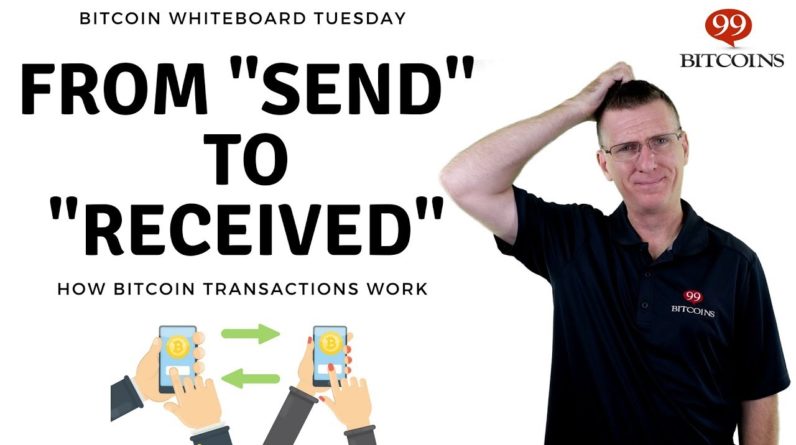The science of the block chain is already an issue. One of the problems we're interested in, for example, is how do you extend mobile payments to villages in the Third World that don't have mobile phone service and some people suggest that you use a block chain for this, but that's completely infeasible because the block chain is already several gigabytes in size and it's growing all the time and unless you've got a broadband connection, you basically can't play in this game. So where you've got restricted environments, where you've got low communications, or very slowed and intermittent communications, using Bitcoin mechanisms is seriously difficult.
[intro screen] In general, the problem with Bitcoin is little parts with very attractive characteristics, but it's also got some downsides. First, it doesn't have the necessary scale. Bitcoin transactions are going through on the order of one transaction per second. But if you want to compete seriously with Visa MasterCard, especially in the run-up to Christmas, you need to be doing at least 1,000 times a second. Second, the sheer volumes of money that you would need if you were to process into bank transactions, for example, would be several orders of magnitude larger. Third, there are all sorts of issues around failure and recourse. At present, if you have got a payment system, you basically have to run a help desk, and you have to run a fraud detection service, and an asset recovery service, and so on so that if something goes wrong, you've got somebody to call. And that's a requirement in your payment services directed. But Bitcoin has none of that.
If someone hacks your computer and steals your Bitcoin wallet, there's nobody you can phone. The money is irretrievably gone. And so for that reason, there's some debate if Bitcoin is actually a currency at all. And I personally tend to see it simply as something like being an industrial bearer bond. A digital equivalent to a gold coin. So the number of systems called "altcoins," which also use the block chain mechanism, this idea of building distributed consenseus by getting the players in the system do some cryptographic work to find a hash, which, in turn, then, creates the distributed consensus — So there's a number of variants of the theme that have been proposed and some are actually used for real volume.
Then, there are systems that are a little bit like traditional banking systems. The E.M.V. cards, the mobile payment systems, which are used by payment services and operators in various parts of the world. And that has been the growth area over the past ten years. Mobile payment systems like M-Pesa in Kenya, which use old-fashioned 1980's cryptographic methodology, basically encrypted SMS messages, you bring banking services to people who can benefit from them and who are too far away from a conventional bank branch. And then there have been some exotic systems that have academic ties, such as DigiCash, which was invented by David Chaum in the 1980's, and that uses fancy cryptography in order to see to it that transactions are anonymous and unlinkable.

Right, so I could have a digital coin that I spend with you and you could then spend it with somebody else and they would have no way of telling that you got that coin from me. And that's the exact opposite of Bitcoin and it's got its own problems. Basically, you end up having to rely on that combination of fancy cryptography and some tamper resistance. And it's been useful so far only in a very small scale. We hear these stories of people searching "dumps for hard disks," because they've left in them, the Bitcoin wallet on it and what does the wallet look like? Is that something like the block chain itself, is it like a small version of that, like a list of stuff, or…? A Bitcoin wallet is simply a piece of software that you can run on your PC or laptop or phone which will keep track of your coins and which will contain, critically, the cryptographic key — the signing key — that you use to sign over your coins to somebody else.
Now, in the Bitcoin world, your identity is a public key and public keys and private keys are generated in pairs such that the private key is the secret you have that can be used to sign stuff and your public key, which is, in effect, your name in the Bitcoin system, is what anybody else can use to verify your signature. So if I pay money to you, I don't pay money to you as a person, I pay money to the private key that you've told me corresponds to your wallet. Professor, you're an expert in this financial world and technology, so in your opinion, is this perhaps a template for how things might be evolved in the future or is it — what do you think about this as a kind of starting point? Bitcoin doesn't quite work as a new global currency for a number of reasons.
Firstly, there's the size of the block chain. Secondly, there's the delay. A reasonable delay to get a transaction booked might be about an hour because you have to wait for more than one hash to be sure that the transaction has gone through and it's final. A third problem is the lack of recourse. If something goes wrong, there's nobody to phone. A fourth problem is that, over time, as the amount of money available to miners goes down, so the willingness of people who do Bitcoin mining might go down and the system is certainly going to have to change. It may even face a crisis if it's no longer possible for people to borrow money from the bank in order to buy Bitcoin mining equipment which is already beginning to be the case. So, for a number of technical reasons, Bitcoin was a good first try at building something, but we don't really know what it's successor is going to be really good at.
And, to my way of thinking, Bitcoin is a wonderful technology waiting for somebody to invent its true killer application. [ending screen] [from <how bitcoin works>] So you start off with the last hash plus all of the transactions that you've swept together into a pool to add to the chain, and then put the hash that you found at the end. [from <ai safety>] The problem with AI safety is not solved, is not going to solve itself, and is not easy to solve.




